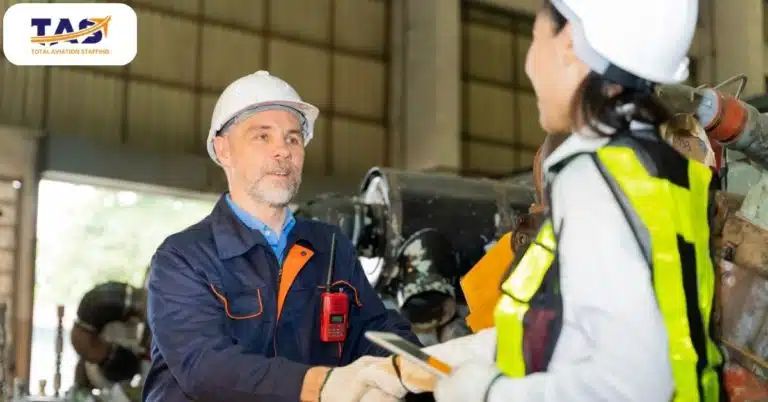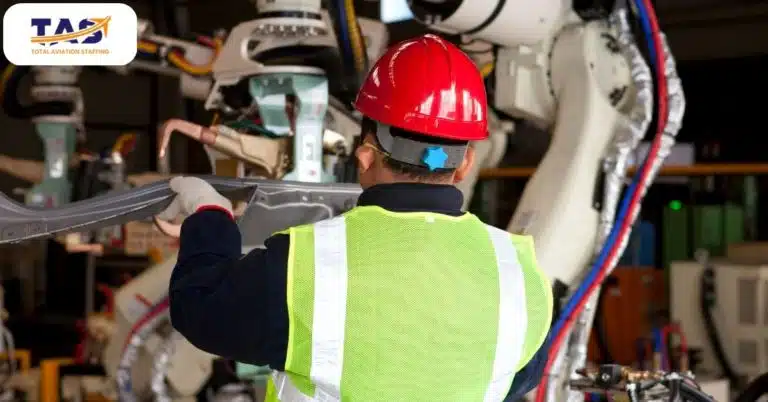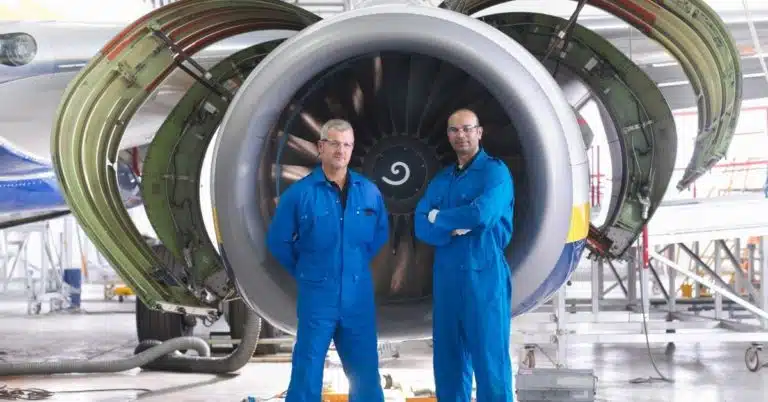Rising to the Top: How to Become a Chief Engineer in the Space Industry

Are you interested in becoming a Chief Engineer in the space industry? Do you have what it takes to reach the top of the field, and make a lasting impact on the future of space exploration? Becoming a Chief Engineer is not an easy task – but with hard work and dedication, it can be achieved. In this blog post, we’ll take a look at the steps you need to take in order to become a Chief Engineer in the space industry and discuss what it takes to be successful. So let’s get started!
1. Develop an Interest in the Space Industry
Developing an interest in the space industry is essential for becoming a chief engineer. Exploring the scientific, technological, and engineering aspects of space-related activities can be extremely rewarding, inspiring a deep appreciation and understanding of what it takes to design, build and manage complex projects in this field. There are many great resources available to learn more about the space industry, such as books, podcasts, websites, and even videos. Additionally, attending conferences or networking events can be a great way to meet professionals currently working in the space industry who can be excellent mentors and advisors.
Having a basic understanding of the history of space exploration is also important for developing an interest in the field. Taking courses related to space science, engineering and technology is a great way to gain knowledge of the fundamentals. Following the news about current developments in the field can provide insight into recent trends and give an idea of possible career paths within the industry.
Having a passion for dreaming up and creating innovative designs to solve complex problems can greatly enhance one’s chances of success when becoming a chief engineer in the space industry. Having an aptitude for mathematics, physics, and engineering concepts is invaluable; however, having the creative vision to recognize and take advantage of opportunities that arise can be just as important. With patience, persistence, and dedication to learning, aspiring engineers can build their skillset and open up new opportunities for advancement in the space industry.

2. Gain Relevant Education and Experience
Becoming a chief engineer in the space industry requires more than just a dream; it requires dedication and hard work. Firstly, it is essential to gain a relevant education. Graduating at the top of your class from aviation or engineering school will highly increase the likelihood of becoming a successful chief engineer.
Research should also be done to stay up to date with current technologies; this knowledge will be beneficial throughout the career. Gaining experience through internships and entry-level positions related to aviation and engineering can give invaluable insight into the profession of being a chief engineer.
Creating networks in aerospace companies such as NASA or Space X is also important so that you can keep learning from industry professionals and stay connected to potential job opportunities. Having strong technical knowledge as well as other applicable skills in aviation are two key components for achieving success on your path to becoming a chief engineer in the space industry.

3. Become Knowledgeable About Rocket Propulsion Systems and Spacecraft Design
Becoming a chief engineer in the space industry requires a vast knowledge of the aviation industry – from rocket propulsion systems to spacecraft design. One path is to focus on developing skills and earning credentials in four primary categories: aerospace engineering, aviation maintenance programs, aviation management, and aviation technology. Those pursuing aviation maintenance may need Federal Aviation Administration Certificates or ratings.
With training in aviation system design and an understanding of applicable standards and regulations, you could specialize in airplanes and helicopters that are used for commercial air transportation or other purposes such as agricultural spraying, search and rescue operations, or aerial firefighting. You might also specialize in aerospace engineering, developing guidance systems and instrumentation control panel designs within programmed parameters such as altitude, speed, route, or timing. A strong grasp of aviation management will prepare you for jobs related to compliance procedures and aviation organization administration; this could include terminal operations or cargo handling management.
Those with a keen understanding of aviation technology will benefit from expertise in coding aircraft systems simulation programs as well as designing studies that evaluate the performance of various parts that compose the aerospace industry. All in all, by diversifying your studies into these four areas chief engineers possess greater opportunities to become internationally certified leaders of major aviation projects.

4. Familiarize Yourself With the Regulations for the Space Industry
Achieving leadership roles in the aviation and space industries requires an intimate understanding of the applicable regulations. If you are aiming to become a chief engineer within the space industry, it is essential to familiarize yourself with the regulations.
This can be done by researching relevant aviation publications and joining aviation or space organizations for additional resources and networking opportunities. Joining professional networks will also give you access to other engineers who have navigated the path of attaining their chief engineer position, giving you valuable insight into how to reach your goal.
Knowing how aviation safety measures apply to launch vehicles is key, as compliance with aviation safety protocols is essential in this field. By dedicating time to developing your knowledge base regarding aviation regulations, you will be well-equipped to lead as a chief engineer in the space industry.

5. Build a Network of Contacts Within the Space Industry
If you dream of becoming a chief engineer in the space industry, one of the most important steps is to build your network. Attending aviation-related events, joining aviation organizations, and staying abreast of current trends are all great ways to build your contacts within the industry.
Such involvement can help you make meaningful connections with other engineers and people in higher positions who can be knowledgeable resources and potential mentors. You may wish to discuss your career goals with those contacts to gain an understanding of what must be done to rise to the top.
All of these actions together will create a robust support system that will certainly benefit you as you take steps on your path toward achieving this exciting career goal.
.webp)
6. Apply for Chief Engineer Roles at Aerospace Companies
Becoming a Chief Engineer in the space industry requires dedication, determination, and hard work. The aviation industry is constantly evolving so having an insight into how spacecraft and satellites are built, maintained, and operated is essential to achieving this role at a high level.
Achieving this goal requires qualified applicants to identify career opportunities at aerospace companies where their qualifications will be best utilized. Career development involves devising achievable goals and steps that can help to identify desirable positions; may it be mentorship programs or honing their skillset to become a qualified Chief Engineer.
Taking the necessary steps towards becoming a Chief Engineer in the aviation industry begins with locating the right position that aligns with your skill set, researching the company’s mission statement, understanding the job description, preparing resumes or portfolios, and submitting applications to aviation businesses seeking candidates for Chief Engineering positions.

7. Demonstrate Your Ability to Lead Teams and Projects in This Field
In order to become a successful Chief Engineer in the space industry, you must demonstrate your ability to lead teams and projects. Showing potential employers that you have the right skill set is key when it comes to achieving this role. Here are five ways to help demonstrate your leadership capabilities:
Communication – Being able to communicate effectively with your team and other stakeholders are essential for accomplishing tasks efficiently.
Problem-solving – Developing innovative solutions to complex problems is a big part of engineering, so having the ability to think outside the box will be beneficial.
Project Management – Being able to coordinate projects, set objectives, and manage timelines will help demonstrate your ability to lead.
Technical Knowledge – Having a deep understanding of science and engineering fundamentals is an important aspect of successful project management.
Leadership – Leading by example, motivating team members, and working collaboratively will go a long way in demonstrating your leadership abilities.
By employing these strategies, you can demonstrate that you possess the requisite skills to lead teams and projects in the space industry. This will show potential employers that you are a dedicated professional who is serious about achieving success in the field.

In Conclusion
Becoming a Chief Engineer in the aviation industry is an ambitious and rewarding goal that takes dedication, determination, and hard work. It is possible to achieve this goal by building your network, applying for chief engineer roles at aerospace companies, and demonstrating your ability to lead teams and projects. By taking the necessary steps outlined above, you can put yourself in a position to become a successful Chief Engineer and make an impact in this dynamic industry.
Are you interested in taking your career to the next level by becoming a Chief Engineer in the aviation industry? Then look no further than Total Aviation Staffing! We are committed to helping you build your network, apply for positions at aerospace businesses, and demonstrate your leadership capabilities. With our help, you can start on the path toward achieving success in this growing and vibrant field. Don’t wait any longer – contact us today to get started on your journey toward becoming a Chief Engineer! Together, we can make sure that you reach your full potential in the aviation industry.
